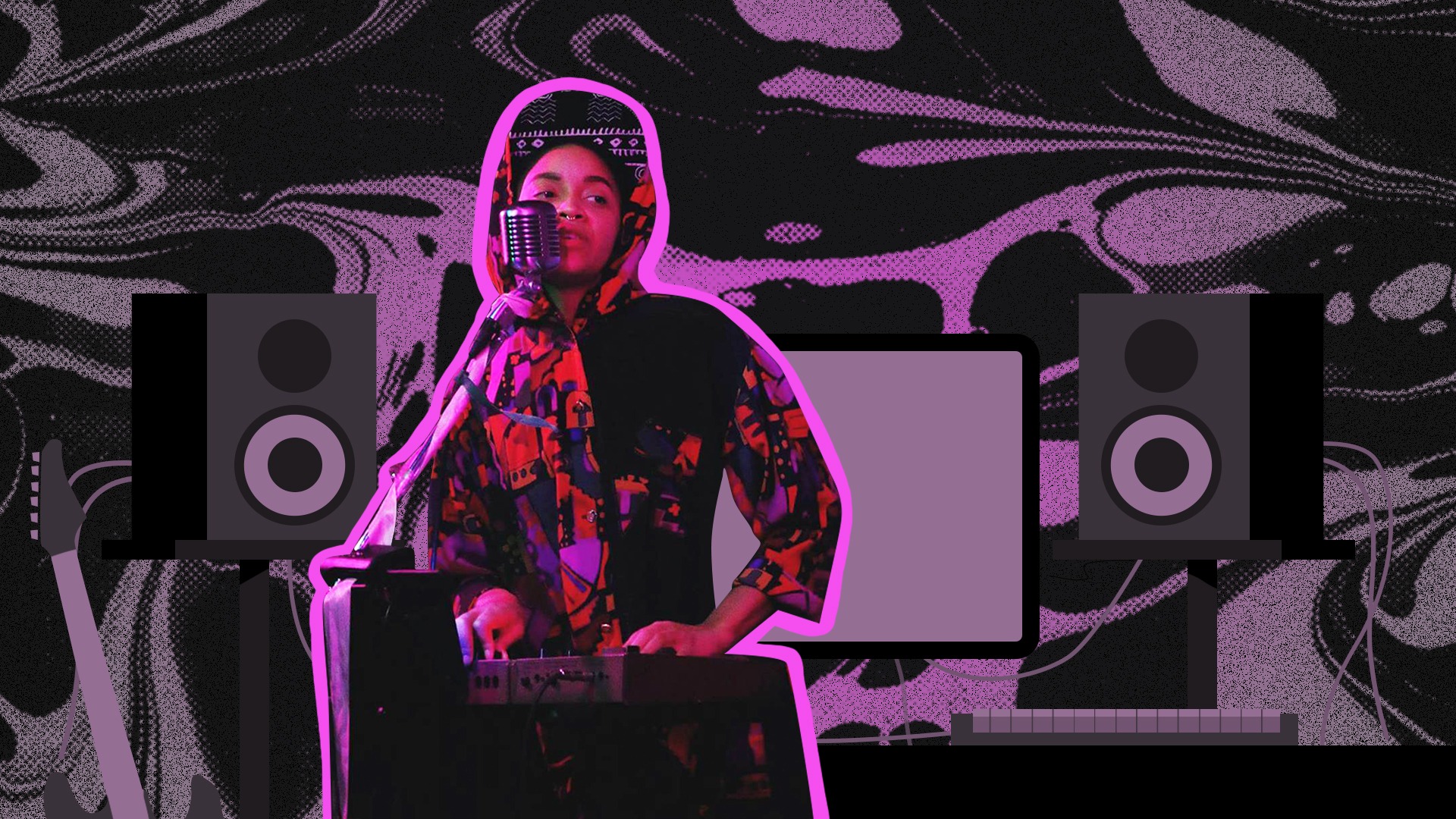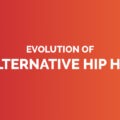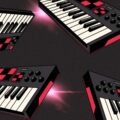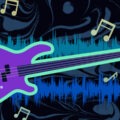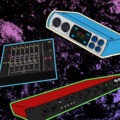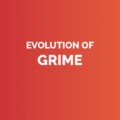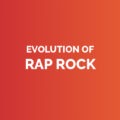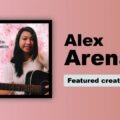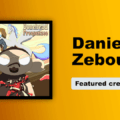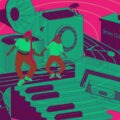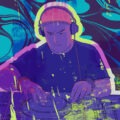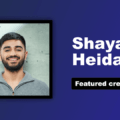Vocalist, producer, multi-instrumentalist and DJ, Janette King can do it all. She’s toured across North America, performed with major artists like Cupcakke, Jamila Woods, and Sudan Archives, and headlined festivals in the US and the UK. In 2021, she released her debut LP on Hot Tramp Records, which was lauded by fans and media alike.
Drawing on her 12 years of experience writing, producing, and recording music, Janette took some time to share knowledge on songwriting, studio equipment, and following your dreams. In an industry that can be unforgiving, she hopes to inspire young artists to remember their worth, and never settle.
RAC: How did you start pursuing a career in music?
Janette: I started off writing poetry at 11 years old, not knowing what I was doing. Fast-forward to high school, and my friend’s brother was in a band called The Boom Booms, and they were looking for a background singer. That was my way into the music industry. I joined their band and we went on tour the year I graduated. I just kept writing music, and later branched out and created my own bands.
RAC: What drew you to learning production on top of being a vocalist and musician?
Janette: There was some sort of video that I watched…I think it was Kanye West showing how he made music on an MPC. I thought to myself, “I can do that!”. I really loved playing instruments, and wanted to be self-sufficient by making everything myself.
RAC: How did you learn?
Janette: It was mostly self-taught with YouTube tutorials. I didn’t really have any friends at the time who were into music production, so I relied heavily on the Internet. I started by listening to music and trying to figure out how to best replicate the song. I would type in questions like, “How to make a fat bass line?” or “How to make a 404-sounding drum kit?”
I also went to jazz school and majored in composition. We had a section on studio equipment. I thrive in situations where I have a teacher and I can ask them questions. I siphon as much knowledge as I can from them, and it helps me in the long run. There’s also a lot of things you don’t know that you don’t know! Being in school is great because they lay it all out on the table.
RAC: Any good resources to share for someone who’s just starting out?
Janette: Your best friend is YouTube. Regardless of who you listen to, or what kind of genre of music you want to pursue, you’re going to learn so much from doing research and finding step-by-step guides. The biggest thing is consistency and patience.
If there were one thing that I could go back and tell my younger self, it would be to not take extended breaks. Just be consistent and you’re going to get really good, really fast.
RAC: What’s the most valuable lesson you learned while working in the studio?
Janette: You don’t need the $3000 keyboard. You can do a lot with what you have. The biggest lesson I learned was to master the things that I had before expanding my arsenal. You’d be surprised – you listen to J Dilla and he made all that music on some old machines that people might even laugh at now. It’s really just about what you have in your soul and how you’re going to express it, it doesn’t really matter what you express it with.
RAC: Is there any basic equipment you’d recommend to someone who’s just getting into production?
Janette: Make sure that your computer is powerful enough. People will try to get by on a cheap PC, but if there’s one expensive thing I would recommend anyone should get, it’s a powerful computer. After that, you can get any MIDI keyboard. If you have those two things, you’re golden.
RAC: What’s your favourite DAW and why?
Janette: The only DAW I’ve ever really used is Logic. I love it because I’m a very linear person. I like to create things as I hear them in my head, moving forward in time. But that’s not the way everyone works, some people like to jam things out and experiment as they go. I know that Ableton is cool because you have endless different ways in which you can be creative. Whereas Logic is really linear – you make it from the start and it goes all the way to the end. I work well like that, so I think that’s why I’ve stayed with Logic for so long. It’s also affordable!
RAC: In your opinion, what is the most user-friendly DAW?
Janette: Between Ableton and Logic, I would say Logic is more user-friendly. Everything is colour-coded and very visually appealing. They put time and effort into the way it looks. Ableton is not ornamented, it’s more utilitarian and looks like a WordPress document. But I have heard that creating music on Ableton is more free flow. It depends on styles of learning and working.
RAC: Do you have a favourite, affordable mic?
Janette: I would suggest the Apex 460B Multipattern Tube Condenser microphone. It’s around $300 and comes with an inner tube, a case, and a mic holder. It’s really warm-sounding and appealing to the ear. It’s not dry, so you won’t get a very clean sound – it will embellish the sound to be a bit warmer, which is great for R&B vocals. However, it might not be the right mic if you’re trying to record metal or a genre where you want your voice to sound rawer.
RAC: What are your go-to songwriting prompts for when you’re feeling stuck?
Janette: If I’m stuck, I’ll find a song that I feel inspired by, then just start by picking a small element that I like and trying to recreate it. Usually at that point, something will spark a new idea in me and I’ll go off on my own path. For example, it’s nice to start by finding a kick drum pattern you like, trying to recreate it and seeing what gets the creative engine going.
RAC: How do you prepare your home studio to make it the best recording environment?
Janette: To me, ambiance is really important. I try to set up my studio so that all my instruments are easily accessible. I don’t have to take the guitar out of the case, I don’t have to unwrap the keyboard, everything is there and ready to go. I set up my desk so that the speakers are ear level and the monitor is eye level. If a spark happens, I can just sit at my desk and jump in.
RAC: What’s a basic production technique worth sharing?
Janette: Make space for each instrument you add. If you’re using a kick drum that’s really bass heavy, you don’t need those high frequencies in there, so just get rid of them. It’s really subtle, but it makes a world of difference. By removing frequencies that don’t need to be there, you’re going to free up so much room in the mix and make your song that much better.
—Final notes—
Janette wants emerging artists to always keep trying, even when dealing with rejection and the many “noes” of the music industry. “You might not get into certain festivals or songwriting bootcamps at first, but if you consistently try, you will make it,” she says. She was turned down multiple times before she started landing big gigs, such as opening for rapper Cupcakke, and touring across the U.S. and the UK. Her positive attitude, strong belief in her music, and consistent hard work are what have driven Janette’s career forward.
Written by Maryse Bernard
Illustration by Yihong Guo
